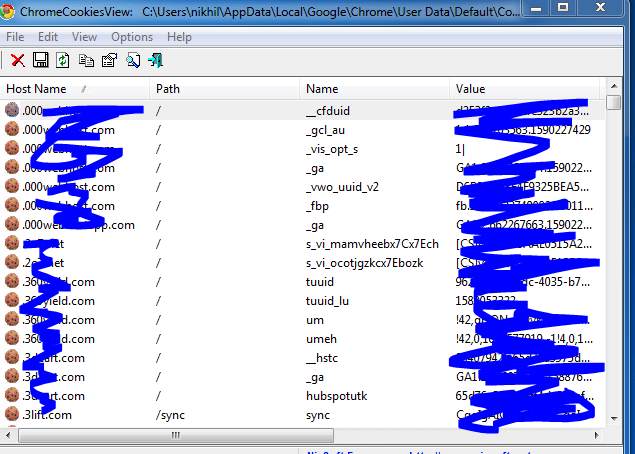
In principle, every time visit a website, the cache checks to see if it has updated so that it can show you the most recent content. Deleting the cache can speed up website loading times and enhance the device’s performance. When browsing the internet, the more information cached in the cache, the slower the computer will be. The cache might get rather huge, depending on your settings, and take up a lot of disc space on your machine. The following are some of the reasons why one wants to erase the browsing history: Why clear cache?Ĭlearing your cache entails erasing all cached information from your local hard disc. As a result, the next time you visit the same website, it will load considerably faster, and you will likely see better recommendations on the page based on your search history. In this instance, the content on the site-such as audio, video, photos, and so on-will be stored on your local computer system by the web browser you are using. If you visit a website with a lot of huge media (videos and pictures), loading the pages will take a long time. Any software or application can be referred to by the web cache system. As a result, if a user’s following requests fit certain criteria, the cache will be able to satisfy them. Web cache systems keep a copy of every document that passes through them. In other terms, a cache is a collection of downloaded data and information that allows a user to visit a web page more quickly. Images, HTML pages, and other types of documents may be included. What is Cache?Īn HTTP cache, often known as a web cache, is a sort of information technology that stores online documents temporarily (in the form of a cache) to reduce overall bandwidth usage, perceived slowness, and server stress. Cookies use these to trace their overall preference and interests. It contains information about their surfing session, as well as tracks of their favorite web pages. Cookies, on the other hand, merely keep track of the user’s preferences. As a result, the website’s loading time will be reduced in the future, and visitors will have an easier time logging in.

While a user is working on a website, a cache saves the online resources from that page in a browser for later use. Cookies, on the other hand, are used to save user preferences such as browsing sessions and to track user preferences.Ĭache and Cookies were created to improve the performance of a website and make it more accessible by saving data on the client-side machine. The primary distinction between Cache and Cookie is that Cache is used to save web page resources in a browser for long-term storage or to reduce loading time. The distinction between cache and cookies is important.

They accomplish this by storing some client data on the client-side machine. Previous Year Question Paper with Answers – Forensic Science (NET-JRF)īoth of these essentially help websites improve their overall performance by providing better (and tailored) accessibility for website visitors.


 0 kommentar(er)
0 kommentar(er)
